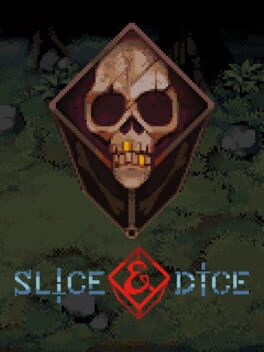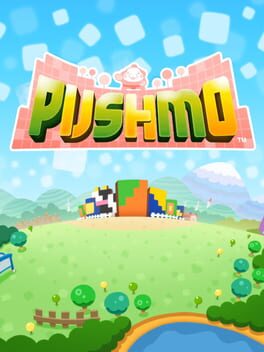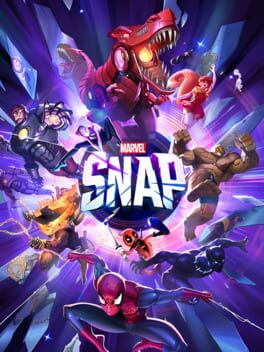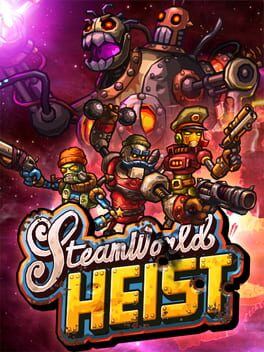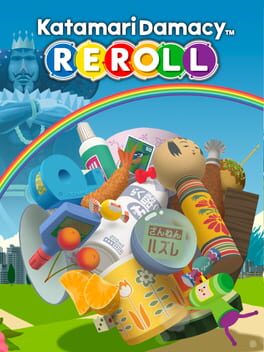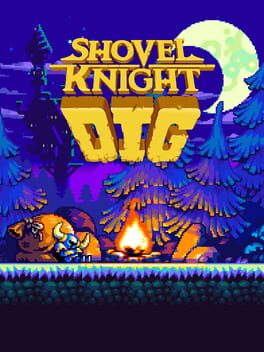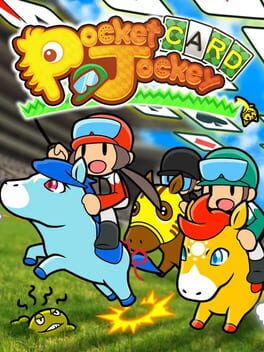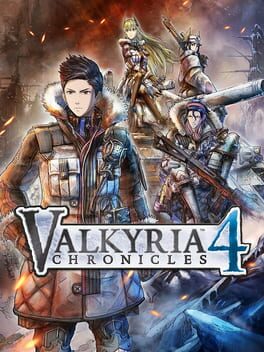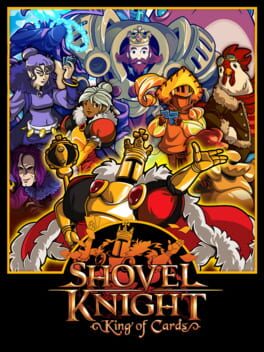ann3lid
2021
This is a really fun rougelike that is best experienced on mobile. The concept of using actual die to roll your moves is really clever and is explored thoroughly through the various classes, enemy types, and items you'll experience. A major gripe I have with the game is how the upgrade classes are not linked in any way to the current classes of your characters. This can lead to some frustrating scenarios where you turn down crucial character upgrades in the late game because they don't gel with how you've built your character/team. One potential solution could be to group classes into archetypes and restrict the possible character upgrades to classes of the archetype to which they already belong. Then, allowing for a class reroll (also with dice) at the beginning of the game could be a fun way to keep the randomness of the current class system but allow for a bit more strategy.
2011
2022
A fun mobile game with a pretty fair monetization structure. Because games are really quick and decks are small, deck building feels really approachable, but higher rank players might find there is little room for creativity given that decks need to be so optimized. Most cards have a connection between their character and gameplay effect, making them satisfying to use.
2015
This game surprised me in a good way. In fact I almost dropped it in the first hour or two before becoming quite addicted to the fast pace of levels and ricochet-style combat at play. I'm still not really a fan of the dialogue which in some places has aged somewhat poorly (e.g., collecting "swag" throughout the level), but the main beats of the story actually had me excited to move through the current area and on to the next one. As mentioned in other reviews here, the swapping of enemies (both asthetically and mechanically) between areas really helped to keep the gamplay fresh throughout this 10-20 hour experience.
2022
A nice rogue-like experience that brings the character of Shovel Knight to a whole new genre. This is not the most content-rich or varied rogue-like (or even Shovel Knight) game that I've played, but it is a really charming experience. The music here is particularly great and I would recommend playing this with headphones (or purchasing the OST) if you like chiptune at all. If there are future updates that add... more, this could be a great game, but for now it is just a really good one.
2013
Vallkyria Chronicles 4 is a mostly enjoyable experience for returning fans of the VC series.
In terms of gamplay, the mechanics are just as satisfying as in VC1 and the new additions (sometimes) add a nice new layer of strategy to the mix. However, it remains very easy to cheese these mechanics and avoid most of the challenges the levels put forth through the use of orders (which remain broken) and the APC. If the scoring system was different, this would be no problem since you would be punished for using such a strategy. Unfortunately, the game actively rewards these strategies by basing the ranking on turns to completion alone. In addition, some mid-battle objective changes or enemy appearances can make planning for a battle feel like a waste of time.
When it comes to story, there is also not much here that is very engaging. It is a very run of the mill plot that acts to ferry the player from battle to battle which, in principle, is fine for this type of game. The main problem is that the characters here are generally very flat or, in the case of Raz, incredibly misogynistic. Despite this, the game doesn't really address these flaws and somtimes seems to actively encourage them which can make for an uncomfortable play experience.
In spite of of these flaws, the core mechanics of VC4 (when you ignore the scoring system) are still quite fun to engage with. I just wished the game wasn't trying to discourage me from doing so for the majority of my playthrough.
In terms of gamplay, the mechanics are just as satisfying as in VC1 and the new additions (sometimes) add a nice new layer of strategy to the mix. However, it remains very easy to cheese these mechanics and avoid most of the challenges the levels put forth through the use of orders (which remain broken) and the APC. If the scoring system was different, this would be no problem since you would be punished for using such a strategy. Unfortunately, the game actively rewards these strategies by basing the ranking on turns to completion alone. In addition, some mid-battle objective changes or enemy appearances can make planning for a battle feel like a waste of time.
When it comes to story, there is also not much here that is very engaging. It is a very run of the mill plot that acts to ferry the player from battle to battle which, in principle, is fine for this type of game. The main problem is that the characters here are generally very flat or, in the case of Raz, incredibly misogynistic. Despite this, the game doesn't really address these flaws and somtimes seems to actively encourage them which can make for an uncomfortable play experience.
In spite of of these flaws, the core mechanics of VC4 (when you ignore the scoring system) are still quite fun to engage with. I just wished the game wasn't trying to discourage me from doing so for the majority of my playthrough.
I picked this up when it launced, made it to around the King Pridemoor fight, and then put it down. After picking up Shovel Knight Dig, I had an itch to go back to the franchise proper and it made perfect sense to return to the one campaign I had never finished. I can't believe what I was missing out on!
Everything about this game is firing on all cylinders. The levels are all a joy to play and manage to flip how you think about your spin-move constantly (especially some of the side areas in the Mole Knight levels). All of the new (and old) NPCs are hilarious and in particular I have to mention the step dad-like relationship King Knight has with King Pridemoor and his Mom. The music is, as usual, quite catchy and well-composed but longtime fans of the series might be disappointed to hear some direct repeats from the previous entries in the mix.
One of the main new features in this campaign is Joustus which is a card game that serves both as a welcome distraction from the action-oriented levels and also plays a prominent role in the plot. In fact, King Knight's whole reason for going on his adventure is to become the titular King of Cards. While I've really grown to love Joustus, I found it to be really frustrating when I first started. I think part of this is due to the fact that some of the nuance of the card game goes unexplained within the game and also because you are able to face off against some opponents early on when you have a deck that realistically cannot compete against them. For me, the key was to realizing that Joustus should primarily be played reactively (e.g., focusing on removing opponents cards from gems rather than on placing your own cards on gems) and that the graveyard should be really treated as an extension of the board and is crucial for creating "locks" in the board that will secure gems.
Aside from my minor grievances with how Joustus is taught to the player, I think that Shovel Knight: King of Cards is both a fantastic standalone game while also brilliantly complementing the other Shovel Knight campaigns. I would recommend this game to anyone who is fan of platformers and/or card games, period.
Everything about this game is firing on all cylinders. The levels are all a joy to play and manage to flip how you think about your spin-move constantly (especially some of the side areas in the Mole Knight levels). All of the new (and old) NPCs are hilarious and in particular I have to mention the step dad-like relationship King Knight has with King Pridemoor and his Mom. The music is, as usual, quite catchy and well-composed but longtime fans of the series might be disappointed to hear some direct repeats from the previous entries in the mix.
One of the main new features in this campaign is Joustus which is a card game that serves both as a welcome distraction from the action-oriented levels and also plays a prominent role in the plot. In fact, King Knight's whole reason for going on his adventure is to become the titular King of Cards. While I've really grown to love Joustus, I found it to be really frustrating when I first started. I think part of this is due to the fact that some of the nuance of the card game goes unexplained within the game and also because you are able to face off against some opponents early on when you have a deck that realistically cannot compete against them. For me, the key was to realizing that Joustus should primarily be played reactively (e.g., focusing on removing opponents cards from gems rather than on placing your own cards on gems) and that the graveyard should be really treated as an extension of the board and is crucial for creating "locks" in the board that will secure gems.
Aside from my minor grievances with how Joustus is taught to the player, I think that Shovel Knight: King of Cards is both a fantastic standalone game while also brilliantly complementing the other Shovel Knight campaigns. I would recommend this game to anyone who is fan of platformers and/or card games, period.
